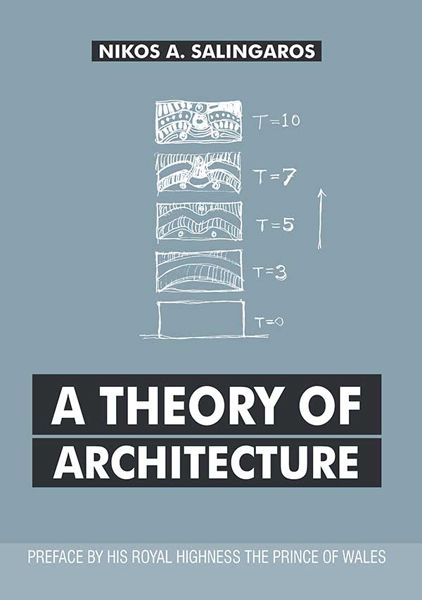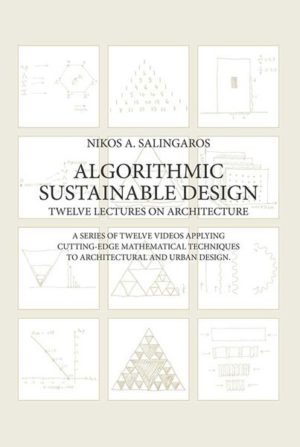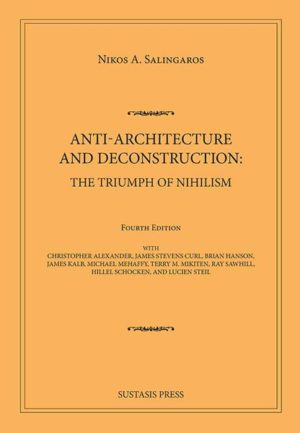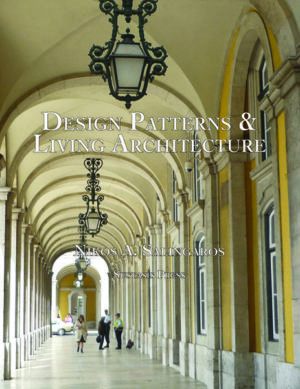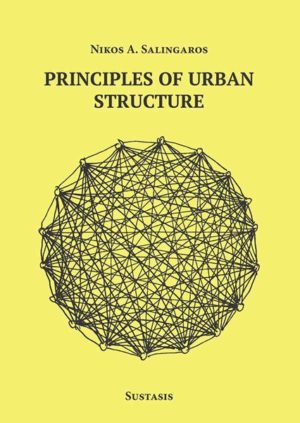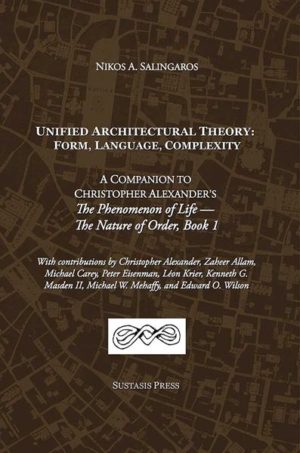More than a decade in the making, this is a textbook of architecture, useful for every architect: from first-year students, to those taking senior design studio, to graduate students writing a Ph.D. dissertation in architectural theory, to experienced practicing architects. It is very carefully written so that it can be read even by the beginning architecture student. The information contained here is a veritable gold mine of design techniques.
This book teaches the reader how to design by adapting to human needs and sensibilities, yet independently of any particular style. Here is a unification of genuine architectural knowledge that brings a new clarity to the discipline. It explains much of what people instinctively know about architecture, and puts that knowledge for the first time in a concise, understandable form.
Dr. Salingaros has experience in the organization of the built environment that few practicing architects have. The later chapters of this new book touch on very sensitive topics: what drives architects to produce the forms they build; and why architects use only a very restricted visual vocabulary. Is it personal inventiveness, or is it something more, which perhaps they are not even aware of? There has not been such a book treating the very essence of architecture. The only other author who is capable of raising a similar degree of passion (and controversy) is Christopher Alexander, who happens to be Dr. Salingaros’ friend and architectural mentor.
“Surely no voice is more thought-provoking than that of this intriguing, perhaps historically important, new thinker?”
From the Preface by His Royal Highness, Charles, The Prince of Wales
“A New Vitruvius for 21st-Century Architecture and Urbanism?”
Dr. Ashraf SalamaChair, Department of Architecture and Urban Planning, Qatar University, Doha, Qatar
“Architecture, Salingaros argues, is governed by universal and intuitively understood principles, which have been exemplified by all successful styles and in all civilizations that have left a record of themselves in their buildings. The solution is not to return to the classical styles… the solution is to return to first principles and build within their constraints… ”
Dr. Roger Scruton
Philosopher, London, UK
“A fundamental text, among the most significant of the past several years.”
Dr. Vilma Torselli
Architect and Author, Milan, Italy
“A Theory of Architecture demonstrates how mathematics and the social sciences offer keys to designing a humane architecture. In this brilliant tome Salingaros explains why many modern buildings are neither beautiful nor harmonious and, alternatively, how architects and patrons can employ scale, materials and mathematical logic to design structures which are exciting, nourishing, and visually delightful.”
Duncan G. Stroik
Professor of Architecture, University of Notre Dame, Indiana
“Salingaros explores ways to clarify and formalize our understanding of aesthetic forms in the built environment, using mathematics, thermodynamics, Darwinism, complexity theory and cognitive sciences. Salingaros’ remarkable observations suggest that concepts of complexity and scale can someday provide a full-bodied explanation for both the practice and the appreciation of architecture.”
Kim Sorvig
Architecture & Planning, University of New Mexico
See this book’s Wikipedia entry
http://en.wikipedia.org/wiki/A_Theory_of_Architecture
Nikos A. Salingaros is an internationally known urbanist and architectural theorist who has studied the scientific bases underlying architecture for thirty years. Utne Reader ranked him as “One of 50 visionaries who are changing your world”, and Planetizen as 11th among “The top 100 urban thinkers of all time”. He is Professor of Mathematics at the University of Texas at San Antonio.


